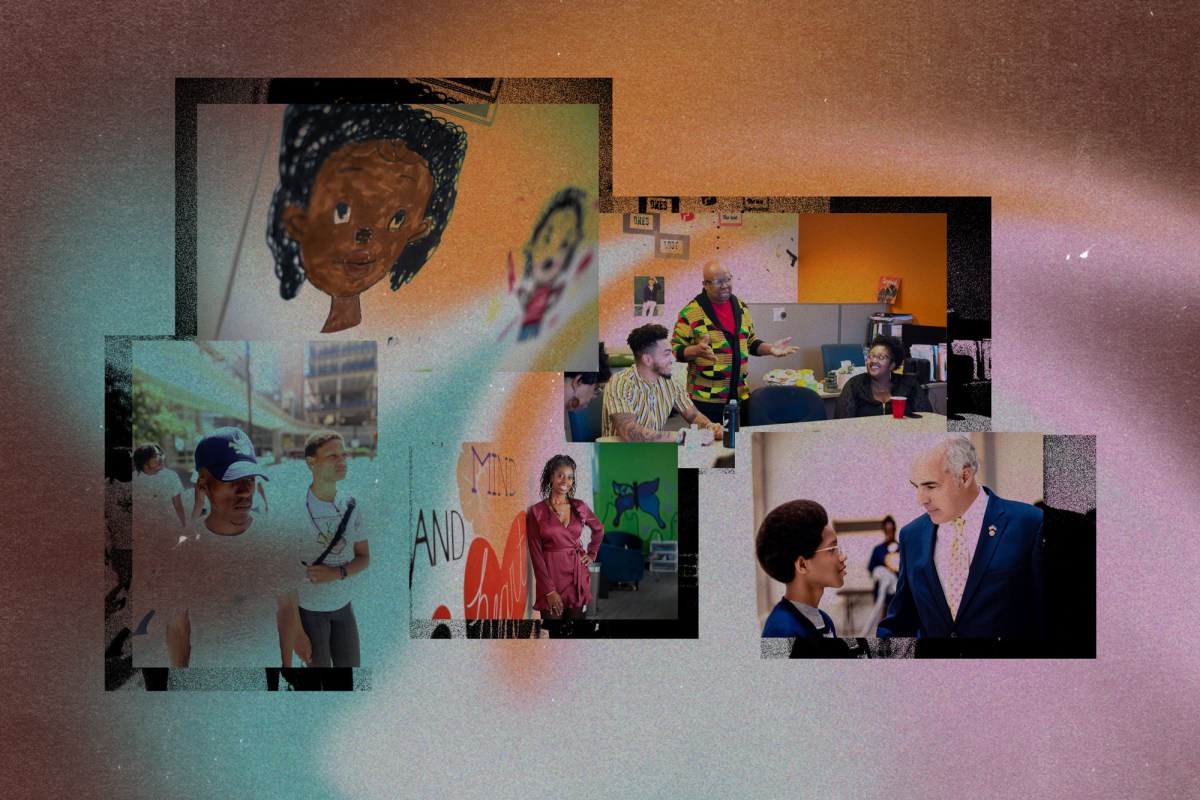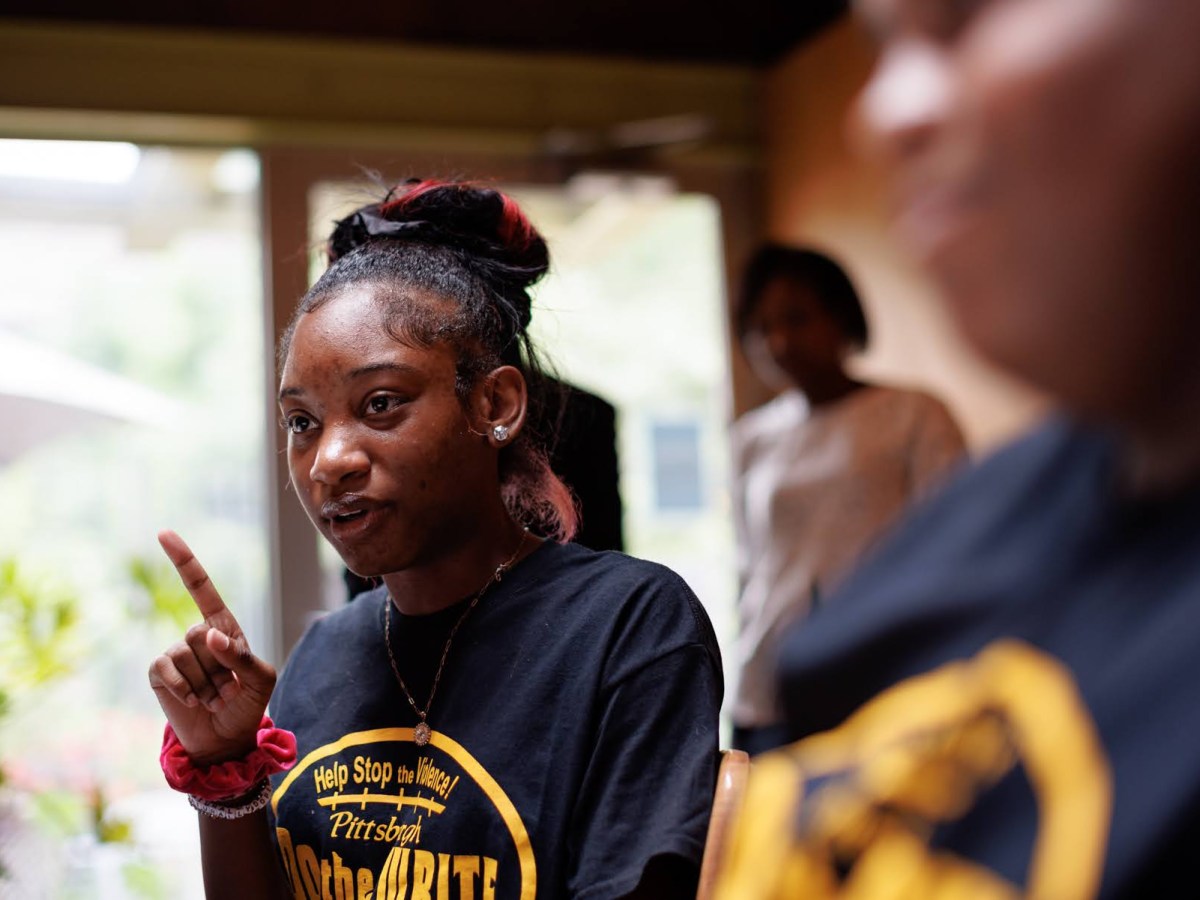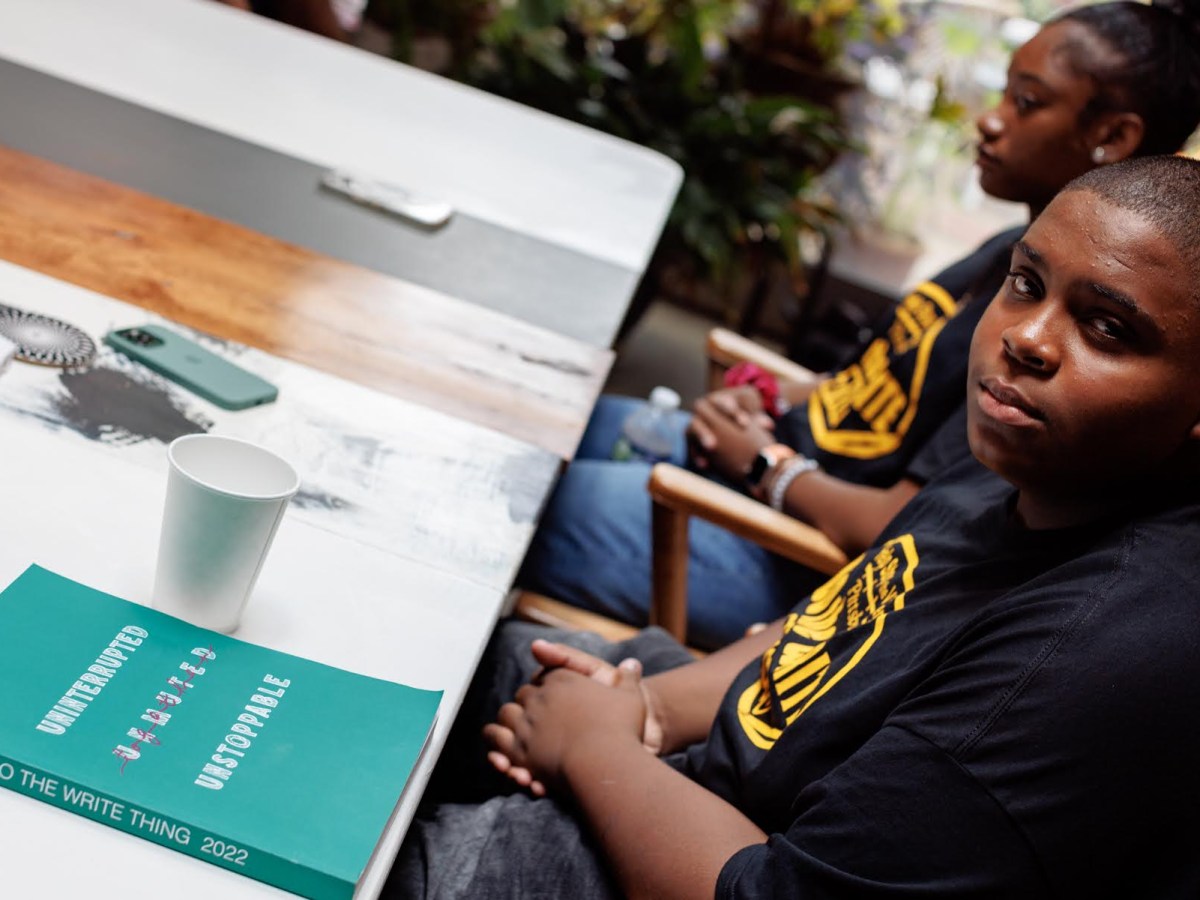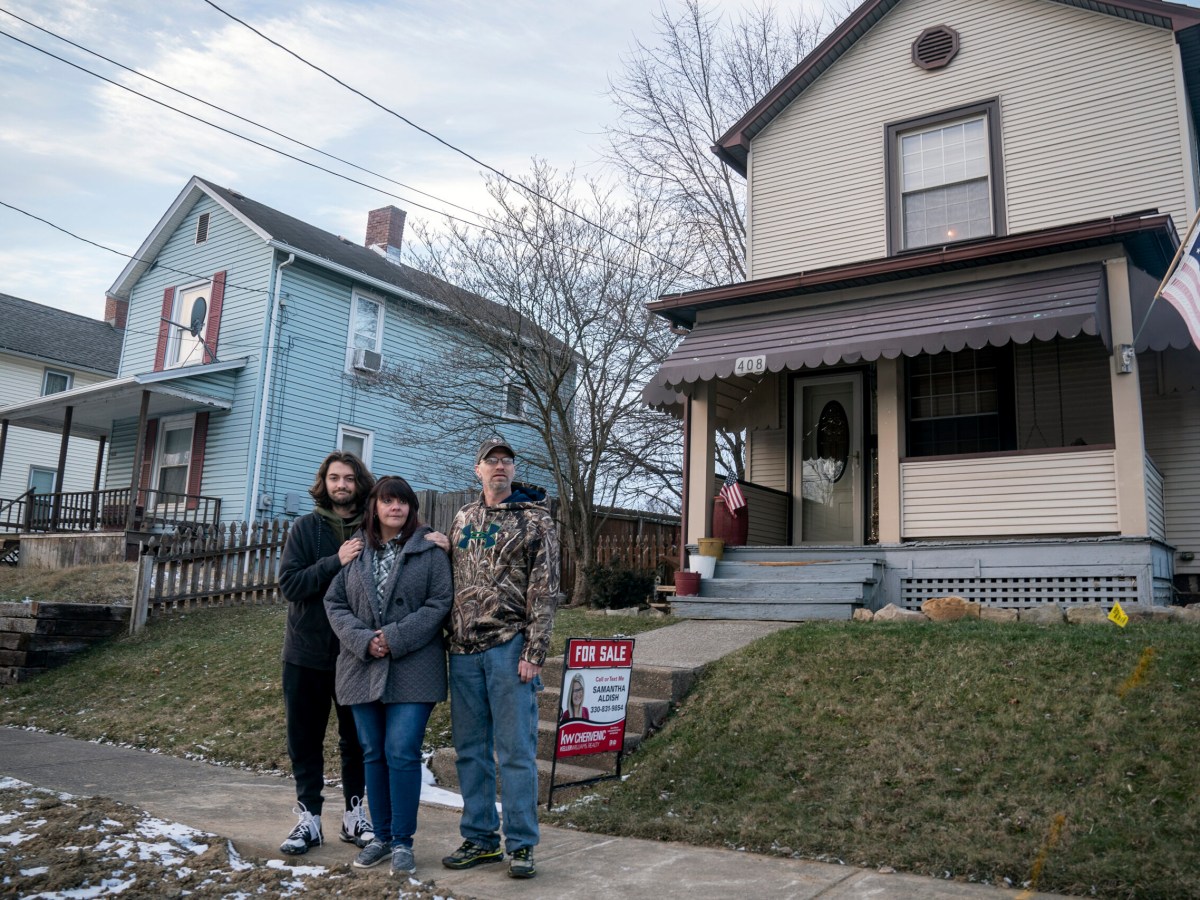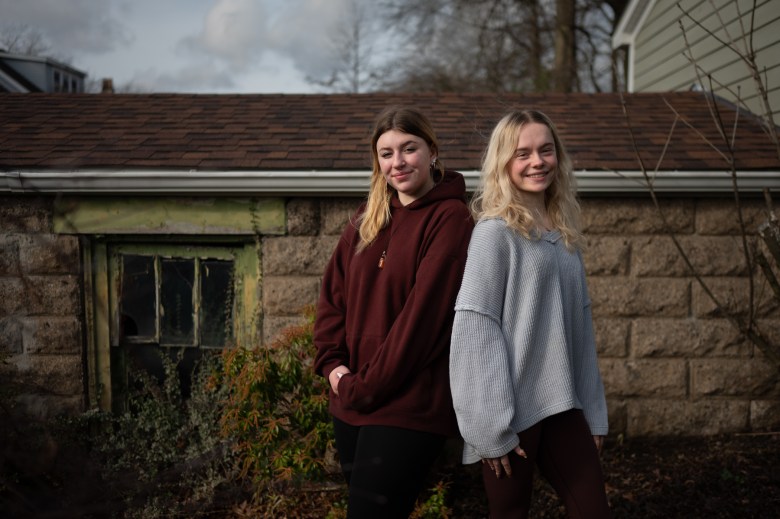Accomplished.
That’s how Jaia Harrison felt — like her voice mattered — as she walked out of the Allegheny County Courthouse with her father on a mid-June afternoon, still buzzing from her interview with Judge Dwayne Woodruff.

From the Source podcast Season 4
Where local teens voice their passions, concerns and prospects. Catch up with the kids these days.
After seeing a boy shot a few feet from her at a haunted hayride in September 2021, she penned an essay about how gun violence touched her life. Do the Write Thing, a national program that prompts middle school students to write about the causes and effects of violence, selected her as one of 10 eighth-grade finalists across Pittsburgh to speak to the judge.
“I held my own,” Jaia said. “I didn’t feel intimidated. I felt comfortable. And I felt like this is what I want to do, this is how I can make a change.”
That feeling — and a connection she made through the program — may lead Jaia to her greatest accomplishment yet as she joins the county’s evolving network of violence prevention leaders.
She and fellow finalist Deahmi Mobley joined forces throughout the summer to begin creating an after-school program focused on ending gun violence. Researchers praise these programs because they provide safe environments where young people can connect and learn skills for navigating the emotional turmoil brought on by traumatic experiences.
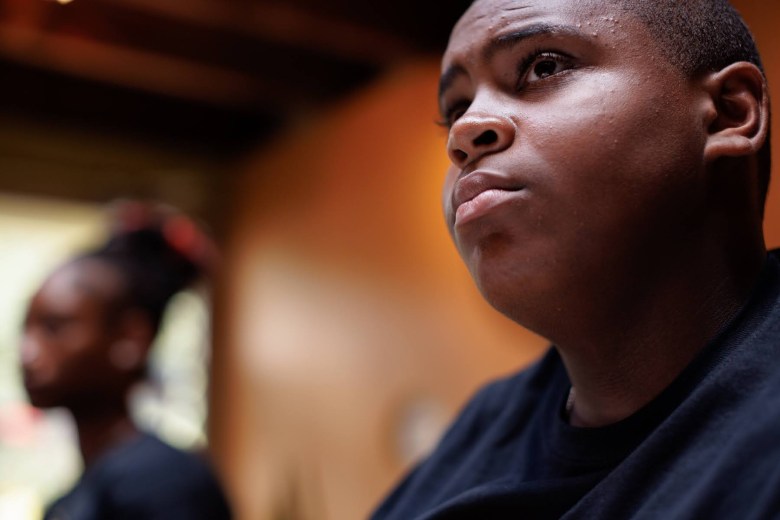
Leaders at five violence prevention organizations across Allegheny County told PublicSource how they are addressing the toll of gun violence on young people’s mental health. They are providing everything from skills for processing emotions to mentorship opportunities and renewed hope for the future.
Unfortunately, the need for these programs hasn’t ebbed.
Over the past three years, Allegheny County has seen an uptick in youth gun violence, with homicide victims younger than 24 nearly doubling from 2019 through 2021.
These trends especially impact under-resourced communities, despite ongoing prevention initiatives, said Mary Ohmer, a social work professor at the University of Pittsburgh who specializes in violence prevention research.
These communities “have a lot of amazing people, organizations and grassroots efforts,” Ohmer said. Over the years, they’ve “had the most inequities that make it difficult for them to maintain the resources and assets they have.”
The rise in gun violence makes it essential for these violence prevention organizations to receive support so they can continue offering their services, Ohmer added.
Moving through numbness
In the days, months and years after a young person is exposed to gun violence, it can feel incredibly difficult for them to discuss the experience and their emotions with other people. Some feel numb or fear that opening up will only leave them with more loved ones to lose.
“It puts a damper on building close, healthy relationships,” said Alliyah Kimbrough, an adolescent and young adult psychotherapist at the teen mental health service UpStreet. “Sometimes it takes the role of wanting to be a little bit more independent, not wanting to rely on other people, not wanting to include people in your life long term. That could become a very isolating and lonely kind of life.”
Research shows that people who are exposed to fatal incidents of gun violence are at a higher risk for having depression, psychological distress, psychotic experiences and suicidal ideation.
Cecelia Ware saw this firsthand.
In 2016, her oldest son — then going into his senior year of high school — was playing basketball at West Park after school when he was shot once in his chest and twice in his right leg.
Physically, he experienced constant pain while recovering from surgeries and coping with severe nerve damage in his foot. Mentally, he struggled with post-traumatic stress disorder, especially because his return to school meant being asked to explain what happened over and over again. Over time, he began having suicidal thoughts.
Ware didn’t know where to turn for support, so she took initiative herself. She began researching restorative practices, and over time, created her violence prevention group Infinite Lifestyle Solutions.

“By trade, I’m a nurse, and I already know people need different care, so that’s always in the back of my mind,” Ware said. “I found out that I really liked restorative practices. I liked art, and I use art as a way of healing.”
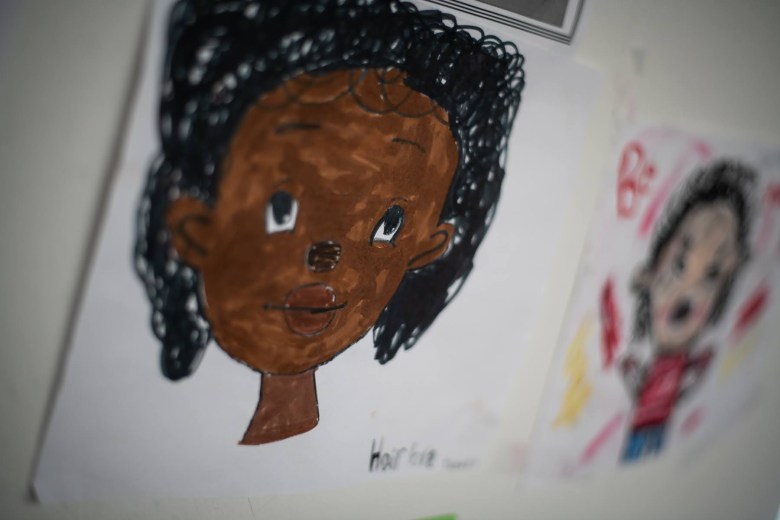
At Infinite Lifestyle Solutions, Ware leads healing circle discussions to help young people begin opening up about their experiences with gun violence. They continue processing their emotions through practices like cognitive therapy, art therapy and yoga.
“They get to talk about how this pain and suffering has impacted their life and how they can move through this,” Ware said. “It’s a journey, and they have to stay at it to become this resilient young person.”
Healing circles are also the backbone of the curriculum at Basketball Dreamz, an after-school program that meets at locations across the North Side.
After passing around snacks and helping teens with homework and goal-setting, founder Mike Dixon has participants circle up. He asks them to imagine realistic situations where conflicts could arise — things like schoolyard politics turned sour or interacting with a discouraging teacher.
Making change: Youth violence and its effects in Pittsburgh
“Being able to talk about it, roleplay and act those things out, we are able to get the students to see certain situations and how to act,” Dixon said.
As the prevalence of youth gun violence rises, Dixon’s healing circles have become an increasingly important tool for the teens in his group. He recalled a meeting in April — just days after the mass shooting at a North Side Airbnb — when his group’s discussion became a space for participants to process their feelings for the first time.
“There were kids there [at the Airbnb] that were family, friends, participants in the program,” Dixon said. “Even if a kid didn’t know anyone, it touched them in a way, and they didn’t have no one to talk with. … Those circles allow them to speak on it.”
The power of mentorship
Kimbrough said positive role models are one of the most powerful forces deterring kids from becoming involved in gun violence.
“It’s someone that they’re able to communicate with that displays healthy coping skills or emotional regulation,” Kimbrough said. “It can also help the adolescent move through the grief stages, so that they aren’t stuck in that.”
Dr. Alison Culyba has seen mentors become a frontline resource for young people as they recover from the trauma of gun violence.
One love, one fight for tomorrow
Culyba’s group Empowering Teens to Thrive meets young people in the emergency room after shootings. The group becomes a one-stop shop for recovery resources, including helping families to navigate the medical care system, supporting teens as they transition back to school and linking them to services for food and housing assistance. A cornerstone of the program is connecting participants to community leaders with training in healing trauma, Culyba said.
“We’re able to be there, to be that source of steady support and positive energy and really help teens develop those long-term coping skills,” said Culyba, who’s also a professor of pediatrics, public health and clinical and translational science at the University of Pittsburgh.
Peer mentorship is just as pivotal for violence prevention.
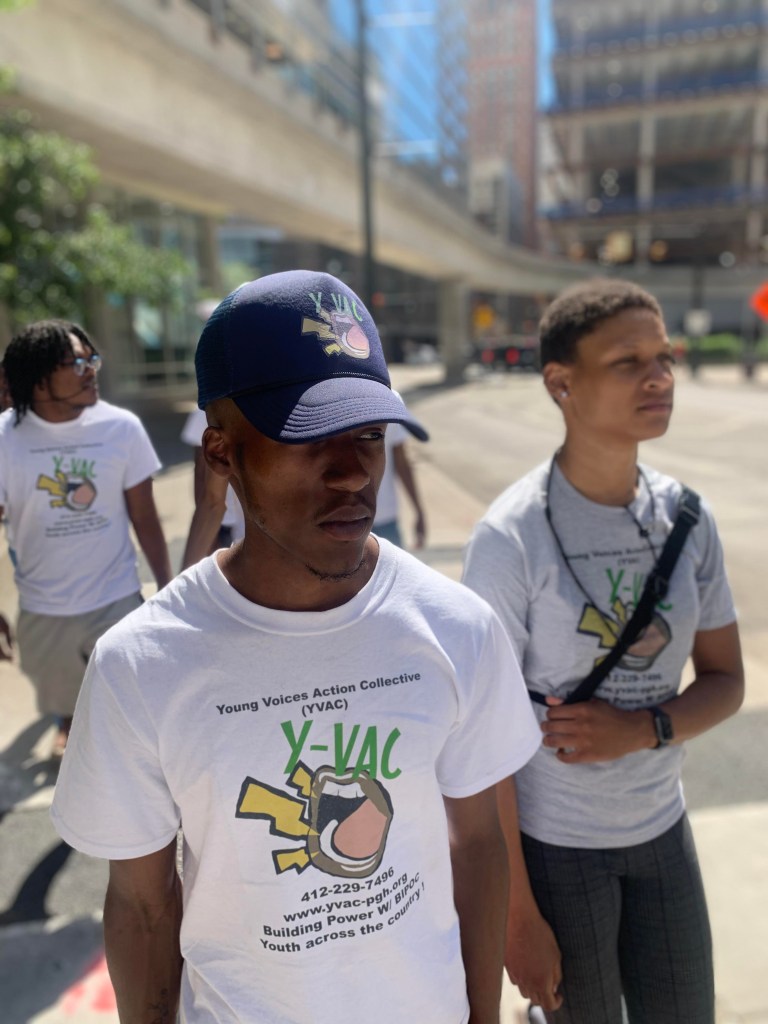
At the Young Voices Action Collective [YVAC], young people are combating the root causes of violence through aid and activism, with programming that includes court-watching, voter education initiatives and mutual aid distribution. The group serves people of all ages, but reserves membership for those younger than 25, providing them with training in violence intervention.
“Young people have the verbiage and the narrative to articulate to young people in ways that an adult ally and people who are a bit older can’t,” said Davonte Johnson, the group’s 21-year-old founder.
YVAC’s approach to prevention works because it fosters respect and trust among at-risk peers, Johnson added. “These are young people who we stopped on the street from fighting and de-escalated the situation, who are now de-escalating and providing training for de-escalation.”
Reclaiming their futures
Living in areas with high levels of gun violence can lead to impulsive decision-making or inability to trust others. For young people, it can generate hopelessness.
“They don’t always see a future,” Kimbrough said. She sees high school seniors approaching graduation without a plan, “because they weren’t sure that that was guaranteed.”
Last year, Ayleena Reed watched her cousin get shot in the head.
In the aftermath, she felt depressed and angry. At night, she would toss and turn as the memory replayed in her mind and during the day she struggled to pay attention in school. She gave up activities that she previously loved, like painting her nails and doing her hair.
On a frigid and fiery night one year ago, a train upended lives in East Palestine
It was the help she received from her family, her school’s therapist and the organization Youth Enrichment Services that made her begin to feel like herself again. The kindness she was shown from peers within the program gave her hope.
“It just made me start new with new friends,” said Ayleena, now 15.
At Youth Enrichment Services, Executive Director Dennis Jones wants to engage youth in a safe environment and “inform them of their own greatness.”
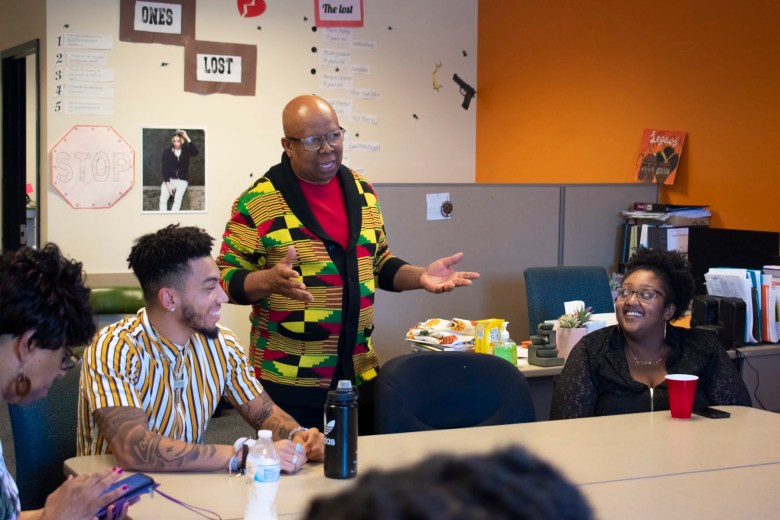
“Some of these kids really believe, ‘It’s just me, I don’t have anybody around me,’ so we build them up with a community of people like them,” Jones said. “We want to make these kids activists because we know that their voice matters, that their energy makes a difference and their presence is critical.”
Helping young people create a future for themselves takes multiple forms — teaching skills for academic success, providing job shadowing opportunities, connecting kids to mentors of all ages.
It also means helping young people travel outside of their communities.
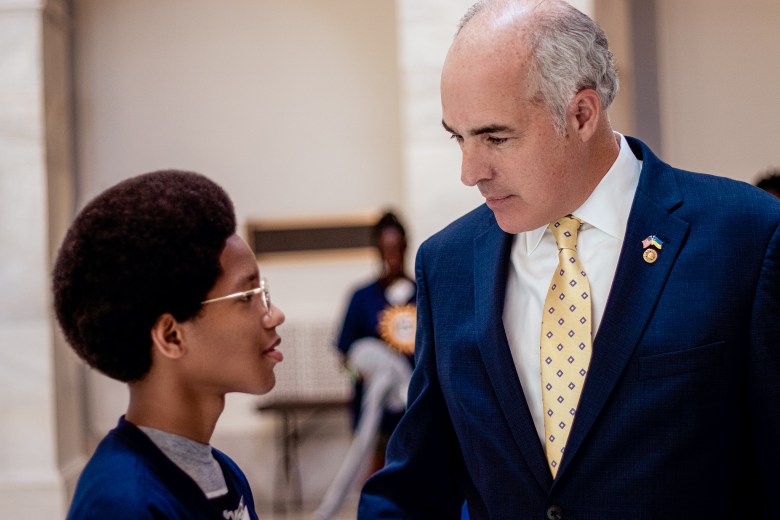
Over the summer, Jones and 50 teens from his program piled into a van for a road trip to Washington, D.C. As they toured museum galleries and spoke with U.S. Sen. Bob Casey, they learned how violence has persisted for decades, and it made them want to become the generation to end the cycle.
“We want them to get outside of this little comfort zone, the cocoon, that little 5-mile radius that they live in,” Jones said. “When we travel and give them an opportunity to see what goes on around them in a larger circle, then that hopefully will be a part of what transforms them.”
Digging up the roots
When Johnson, YVAC’s founder, arrived in Pittsburgh in spring 2021, he spent his first days knocking on doors across Homewood and East Hills, asking to speak with young residents and learn what they cared about. Besides voting concerns, three issues kept popping up: mental health, food security and police abuse in schools.
“All of these things are what fuels community violence,” Johnson said.
Experts view youth gun violence as a byproduct of systemic inequalities, including disparities in access to housing, education and health care.
When gun violence becomes entrenched in a neighborhood, it can make young people turn to guns as a means of protecting themselves, Culyba said. It’s what perpetuates the cycle of violence.
“Safety’s often one of the primary reasons that young people will carry weapons,” Culyba said. “Actually, carrying the weapon puts young people at greater risk of both being injured themselves or them injuring someone else.”
Johnson said he believes the best way to end the cycle is to support young people in tackling the root causes.
“It’s not a matter of young people not being capable,” Johnson said. “It’s not a matter of young people not having the wherewithal or a matter of young people not knowing right from wrong. It’s a matter of: Are they truly being invested in?”
Find a youth program in your neighborhood
Hover over a dot to learn about the programming available at any of 20 youth programs across Pittsburgh. Click the dot to visit the program’s website.
Deahmi and Jaia are ready to take up the cause.
After their interviews with Woodruff in June, they were selected to travel to Washington, D.C., as ambassadors for the Do the Write Thing program. There they met with the staff of Casey and U.S. Sen. Pat Toomey, discussing everything from inflation to actions the senators could take to support young people’s mental health.
They had never imagined they’d be sitting in a senator’s office, and it made them realize the importance of advocating for solutions in their communities. It’s why they care about creating their own violence prevention program.
They envision their program will provide people their age with a space for homework help and games after the final school bell rings every day. They’re currently in the process of securing a space to host the program and meeting with community leaders about their plans.
“I want communities to come together, instead of us just being separated, and see how we can change,” Deahmi said. “I want us to come together and prove that we could do something without guns being pulled.”
Amelia Winger is PublicSource’s health reporter with a focus on mental health. She can be reached at amelia@publicsource.org.
This story was fact-checked by Aavin Mangalmurti.
This reporting has been made possible through the Staunton Farm Mental Health Reporting Fellowship and the Jewish Healthcare Foundation.

